Acid reflux can cause a painful, burning sensation in your throat or chest, which people refer to as heartburn. Many people suffer from acid reflux at some point in their lives, but for some of us, acid reflux becomes a daily issue that starts to affect our mental wellbeing.
Luckily, there are a number of simple home remedies and lifestyle tips that can help reduce or prevent acid reflux and heartburn without the need to resort to medications. Stay tuned to hear of some of the best natural acid reflux treatments for quick relief.
1. Eat sparingly and slowly


When your stomach is very full, there can be more reflux into the oesophagus. If it fits into your schedule, you may want to try what is sometimes called "grazing"—eating small meals more frequently rather than three large meals daily.
2. Avoid certain foods
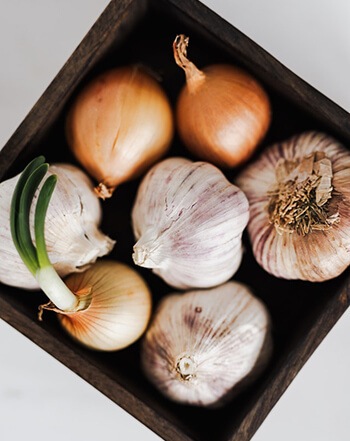

People with acid reflux were once instructed to eliminate all but the blandest foods from their diets, but that's no longer the case. With that said, there are still some foods that are more likely than others to trigger reflux, including mint, fatty foods, spicy foods, tomatoes, onions, garlic, coffee, tea, chocolate, and alcohol.
If you eat any of these foods regularly, you might try eliminating them to see if doing so controls your reflux, and then try adding them back one by one. Do your research online and make a list of foods to avoid for the time being.
3. Don't drink carbonated drinks
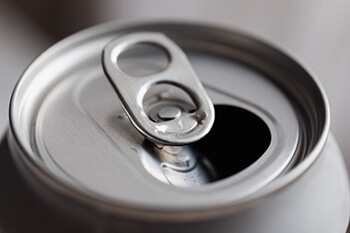

Fizzy drinks make you burp, which sends acid into the oesophagus. It’s unsurprising that these drinks are one of the most common causes of acid reflux, even in people who don’t usually experience the issue.
4. Stay up after eating


When you're standing, or even sitting, gravity alone helps keeps acid in the stomach, where it belongs. Even slouching can trigger heartburn, as it puts pressure on the abdomen, which can force stomach acid in the wrong direction.
For this reason, you should be sure to finish eating three hours before you go to bed. This means no naps after lunch, and no late suppers or midnight snacks.
5. Don't move too fast


Of course, exercise is key if you want to live a long and healthful life, but it’s best to avoid vigorous exercise for a couple of hours after eating if you’re suffering from acid reflux. An after-dinner stroll is fine, but a more strenuous workout, especially if it involves bending over, can send acid into your oesophagus.
6. Sleep on an incline
Many people experience acid reflux problems at night, and this is largely due to the fact that we sleep with our heads resting at the same level as our bodies. Ideally, if you’re trying to combat acid reflux issues during sleep, your head should be 6 to 8 inches higher than your feet.
You can achieve this by using "extra-tall" bed risers on the legs supporting the head of your bed. If you don’t have these available, try using a foam wedge support for your upper body. It’s best to avoid creating a wedge by stacking pillows, as they won't provide the uniform support you need.


7. Lose weight if it's advised


Researchers analysed 10,000 women in a recent study and found that weight gain of 10 to 20 pounds was associated with a threefold increase in heartburn symptoms. It’s thought that increased weight spreads the muscular structure that supports the valve between the oesophagus and stomach, which decreases the pressure that holds the valve closed. This leads to reflux and heartburn.
8. If you smoke, quit


If you smoke or chew tobacco, stop. The nicotine from tobacco relaxes the valve between the oesophagus and stomach. This can allow stomach acid and juices, the chemicals that break down food in the stomach, to back up into the oesophagus, which causes heartburn.
9. Check your medications
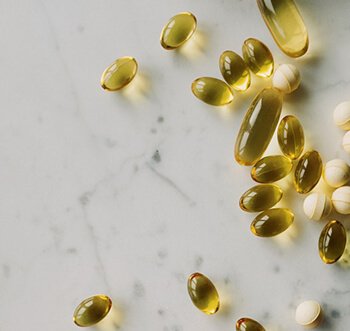

Some medications, including postmenopausal estrogenic, tricyclic antidepressants, and anti-inflammatory painkillers, can relax the valve between the stomach and oesophagus, while others can irritate the oesophagus. It’s unlikely that you’ll know much about how your medications may affect your acid reflux, so talk to your doctor and see if any of them could be contributing to your symptoms.
There are usually always alternative medications that you can try, which will help to reduce the severity of your acid reflux.
10. Chew gum
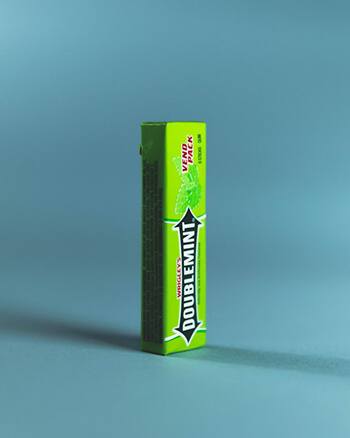

Believe it or not, chewing gum can actually reduce your acid reflux symptoms. A number of studies suggest that chewing a piece after meals helps to keep fluids in your stomach and that the extra saliva from chewing can reduce irritation in an already inflamed throat.
11. Drink baking soda
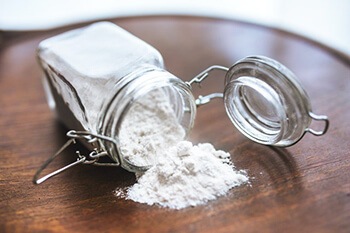

It’s not as appetizing as a piece of gum, but baking soda is a natural antacid. Try drinking a teaspoon mixed in a glass of water immediately following a meal. It can quickly neutralize stomach acid, but keep in mind that it’s only a temporary fix.
Acid reflux foods
There are also a number of foods you can eat that will improve your acid reflux symptoms, including:
1. Basil Leaves
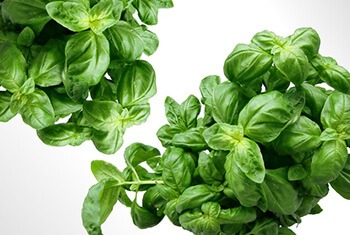

The soothing and carminative properties of basil leaves can give you instant relief from acidity. At the first sign of gas, eat a few basil leaves or boil 3 to 4 basil leaves in a cup of water and let the beverage simmer for a few minutes. Sip on it frequently. This is one of the best home remedies for acidity.
2. Fennel
You can also chew fennel, another popular seasoning, after meals to prevent stomach acidity. Thanks to its multitude of gastrointestinal benefits, fennel tea is sure to help the digestive tract be healthy and happy.
The tea is considered very useful to help indigestion and bloating because of the oils found in these seeds.
3. Cinnamon


Cinnamon works as a natural antacid for stomach acidity and can settle your stomach by improving digestion and absorption. For relief, you can drink cinnamon tea to heal infections in the gastrointestinal tract. Cinnamon is a powerhouse of nutrients and loaded with health benefiting properties.
4. Buttermilk
You might not know much about buttermilk, but it’s categorised as a pure, cleansing food in Ayurveda. The next time you suffer with acid reflux or heartburn after eating a heavy or spicy meal, skip the antacid and drink a glass of buttermilk instead.
It contains lactic acid that normalizes acidity in the stomach. Sprinkle a dash of black pepper or 1 teaspoon of ground coriander leaves into your beverage for the best results.
5. Jaggery
Jaggery is an unrefined sugar product made in Asia and Africa. Thanks to its high magnesium content, it helps boost intestinal strength. It promotes digestion and makes your digestive system more alkaline in nature, reducing stomach acidity.
Suck on a small piece of jaggery after a meal, and enjoy the benefits. As jaggery also helps maintain normal body temperature, cooling the stomach - experts recommend drinking jaggery soaked in ice-cold water during the summer.
6. Cloves
Over the years, cloves gained huge popularity in traditional Chinese medicine and Ayurveda for their ability to treat digestive disorders. Cloves are carminative in nature, which means they prevent the formation of gas in the gastrointestinal tract.
Add cloves while cooking foods like kidney beans, which tend to cause flatulence. You can even eat crushed cloves and cardamom mixed equally to treat acidity and get rid of bad breath, which often comes hand in hand with acid reflux.
7. Cumin Seeds
Cumin seeds work as a great acid neutralizer, and can aid digestion and relieve stomach pain. Crush some roasted cumin seeds and stir them into a glass of water, or steep one teaspoon of cumin seeds in a cup of boiled water and drink it after every meal, to see the best effects.
8. Ginger


Though it doesn’t look like anything special, ginger hides many health benefits. It has excellent digestive and anti-inflammatory properties, which makes it one of the most popular home remedies for acid reflux.
To help neutralize stomach acids, you can chew a slice of fresh ginger, or have a spoonful of ginger juice two to three times a day, or steep fresh ginger in a cup of boiling water and drink up.
9. Cold Milk


If you’re not lactose intolerant, you can drink milk to help stabilize gastric acids in the stomach. It’s rich in calcium, which prevents the build-up of acid in the stomach. All you need to do is drink a glass of cold milk the next time you suffer from acidity.
Interestingly, studies have found that non-dairy milk may be even more effective at treating acid reflux. Almond milk, for example, has an alkaline composition, which can help neutralize stomach acidity and relieve acid reflux symptoms. Soy milk contains less fat than most dairy products, making it a safer choice for people with GERD.
10. Apple Cider Vinegar
Very often, your acid reflux is in fact the result of too little stomach acid. That's where apple cider vinegar steps in.
Simply mix 1-2 teaspoons of raw, unfiltered apple cider vinegar in a cup of water and drink it once or twice a day. You can also take a tablespoon of apple cider vinegar, and chase it with a glass of water.
There’s no guarantee that this will work, as some people experience acid reflux symptoms due to too much acid in the stomach – in which case, apple cider vinegar wouldn’t make a good remedy.
11. Coconut Water


When you drink coconut water, your body's pH acidic level turns alkaline. It also helps produce mucous in your stomach, which protects the stomach from harmful effects of excessive acid production. Since it’s rich in fibre, it aids digestion and prevents the re-occurrence of acidity.
12. Banana


When it comes to health benefiting properties, bananas come out on top. They contain natural antacids that can act as a buffer against acid reflux by coating an irritated oesophageal lining and thereby helping to combat discomfort.
Due to their high fibre content, bananas also can help strengthen your digestive system — which can help ward off indigestion in the first place. For many people, bananas are the simplest home remedy for getting rid of acidity. Eat one banana every day to prevent discomfort.
Conclusion
It’s perfectly possible to treat acid reflux with diet and lifestyle choices alone. If you’d rather not get medical treatment for your condition, or medical treatment has proved ineffective, it’s time to take things into your own hands.
Try to follow as many tips in this video as you can, and you should notice an improvement in your symptoms.

